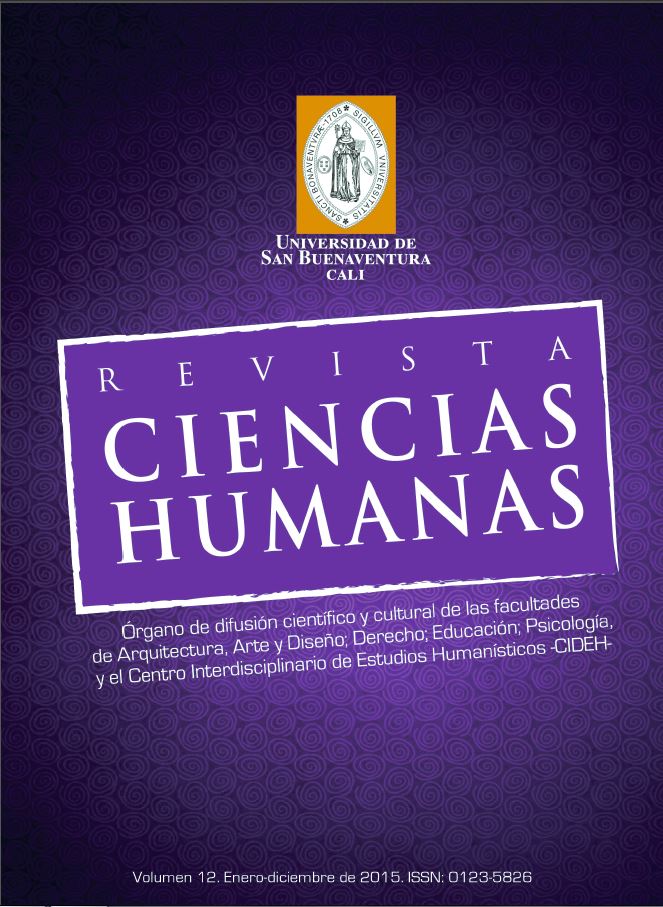The Revista Ciencias Humanas provides open and immediate access to its content, based on the principle of offering the public free access to research to aid in the greater global exchange of knowledge.
Except as otherwise stated, the content of this journal is licensed under a Creative Commons Attribution-NonCommercial-NoDerivatives 4.0 International (CC BY-NC-ND 4.0) license available at http://creativecommons.org/licenses/by-nc-nd/4.0/.
- Attribution. You must give appropriate credit, provide a link to the license, and indicate if changes have been made. You may do so in any reasonable manner, but not in a way that suggests that the licensor endorses you or your use.
- NonCommercial. You may not use the material for commercial purposes.
- NoDerivatives. If you remix, transform, or build upon the material, you may not distribute the modified material.
- No Additional Restrictions. You may not apply legal terms or technological measures that legally restrict others from doing anything the license permits.
Abstract
La crisis actual de los sistemas educativos terciarios –entendida como crisis de los modelos hegemónicos– referida a cómo contribuir a la construcción de conocimiento en los estudiantes y sobre todo, a la definición hegemónica clásica de cuál es el conocimiento válido, indica una novedad en nuestro tiempo: una transformación del hecho educativo de una naturaleza totalmente diferente a los cambios que la educación debió enfrentar años atrás. El problema en la actualidad va más allá de la ampliación de la cobertura educativa y de cómo mejorarla. Ahora, hay que repensar el modelo y para hacerlo se deben redefinir tres aspectos fundamentales: qué se entiende por sujeto aprendiente; qué se entiende por sujeto (docente) que ayuda a construir el conocimiento; y, qué se entiende por conocimiento válido. Es a partir de estas reflexiones que se enmarca en este escrito el enfoque por competencias basado en la complejidad.








